Did you know that when a veterinarian investigates a bird’s stool, he is looking through it for the bird’s health and condition? The sign of healthy budgie poop is in shape and color. They should be round and green or olive.
let’s discover together more about the Budgie Poop Chart :
Budgie Poop Chart | Parrot Poop Chart
We can distinguish healthy Budgie poop by five most important characteristics, which are :
1# Colour:
a budgie poop should consist of three parts, the feces should have an olive-green stool, a whitish urate and clear watery urine.
2# Texture:
Budgie poop is composed of three components “stool, urate, and urine”.
The stool is the solid component that usually is of an olive green color or a little darker to a brownish color.
The urate is the cloudy whitish pasty component.
The urine is the clear watery component.
3# Odour:
The healthy bird droppings does have a littel to no smell at all, if the poop is smelly then the bird’s health condition is not good.
4# Presence of liquids:
Badgie’s poop has two liquid components in the healthy condition which are the urate and the urine, however, if the stool ( which is the olive green component ) is watery then your bird is suffering from diarrhea.
5# size and amount:
Budgies are small birds therefore the size of their droppings should be small, although some changes in the bird’s diet can make a slight hardly noticeable difference.
Furthermore, the budgie poop from three to four times per hour therefore noticing the amount and the size can help you identify if any needed help from the avian vet is necessary.
Legal disclaimer
This post may contain affiliate links which means if you click on a link and choose to make a purchase I may receive a commission at no additional cost to you.
How Often Do Budgies Poop?
Budgies poop about 40 to 50 times per day every 12 to 15 minutes, observing how many times your bird is poopping can help you figure out if it is in a good shape or sick.
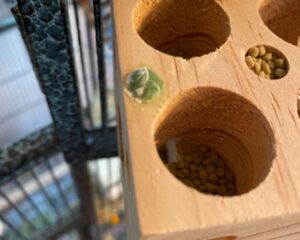
Why is my budgie poop different?
Any change in your bird’s feces in color, shape, or smell that last for only 24 or 48 hours should not be worrying.
however, if your bird shows other symptoms including the feces changements in those 24 to 48 hours you should consult a vet.
Other than that, the changements can be related to the bird’s diet such as eating fresh vegetables or fruits which can affect the amount of water in the droppings.
In case the watery feces lasted more than two days then you should consult an avian vet.
Budgie poop color meaning
Light-Green Droppings (Budgie Green Poop):
mean that your bird is poorly nourished because of a poor diet or stress. or it could be a sign of an infection in the bird’s crop.
Grey droppings (Budgie Grey Poop):
(light grey or grey-brown) indicates pancreas disease.
Red droppings (Budgie Red Poop):
if the budgie had no coloring foodies then the res in the droppings is the blood that comes from an intestinal issue.
Green and yellow droppings (Budgie Yellow Poop):
this is a symptom of liver disease.
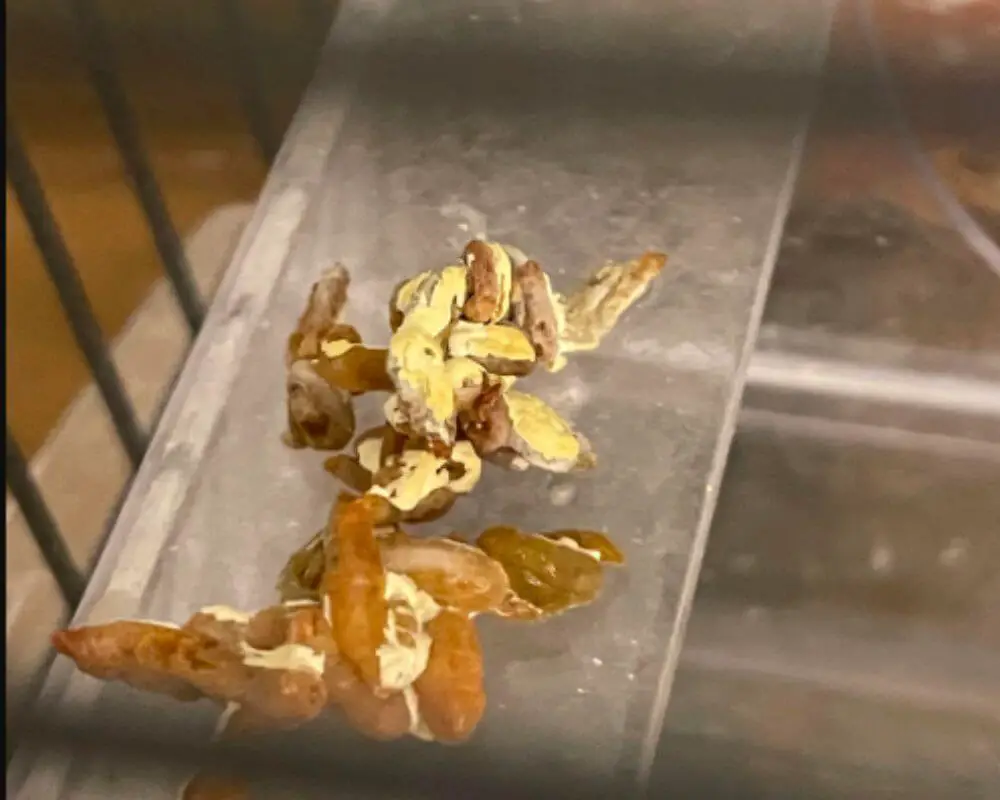
Note
before judging if your budgie’s poop indicates any illness make sure that the food that the bird ate in the past 24h did not contain coloring components.
Budgie isn’t pooping ?
Do budgies get constipation? This is uncommon among this beautiful bird species but it happens.
Constipation can be caused by the low amount of water and fiber in the bird’s diet, or when the bird eats poorly which makes it hard to keep up with its fast digestion system.
As a result of constipation, budgies become uncomfortable and that leads to isolation and loss of appetite.
However it can be confusing to identify constipation in the birds to exhaustion because in both conditions bird becomes less active, and isolated and does not eat and pluck their feathers which is a destructive behavior
that these birds do whenever they feel stressed, sick, or in need of attention, but you can distinguish by the amount of poop in the bottom of the cage, the feces are more firm with less liquid components.
Budgie has diarrhea
Most of the owners of budgies stating that their birds have diarrhea means that the consistency of the droppings is the same but has a more watery texture although the stool doesn’t change.
Budgies can have diarrhea as a result of certain factors such as stress, a poor diet, intestinal parasites, or an infection.
A change in diet can cause diarrhea as well. So can fruits or vegetables that haven’t been washed well to remove pesticides.
Diarrhea can be treated by the owner at home by reducing the number of vegetables and fruits in the bird’s diet for 24 hours, if this didn’t work for the next 24 hours then the bird should be treated by an avian vet.
Diarrhea can be confused with polyuria, the difference is in diarrhea the stool (the firm part of the droppings) doesn’t change it stays in its firm solid form.
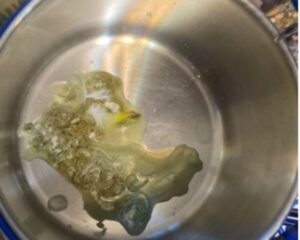
Budgie has too much urate in poop (Watery Budgie Poop)
If your bird’s diet has not changed and it starts suffering from a watery budgie poop it is a sign of polyuria, which is a disease that affects birds caused of certain factors :
• Infectious or bacterial or parasitic diseases
• Nutritional deficiencies
• Anorexia, with increased drinking
• Liver or kidney disease or diabetes
• Poisons and toxins
• Hormonal imbalance
• Reproductive disease
And therefore you need to consult an avian vet as soon as possible.
Nature’s Miracle Bird Cage Cleaner penetrates to eliminate embedded, strong cage odors.
Do Budgies Poop Everywhere?
Yes, birds leave their droppings anywhere in their nests, on perches, on toys, and even on each other.
If you are one of the breeders who let their birds hover in the house comfortably, beware that some of their droppings will infect you.
Can A Budgie Get Constipated?
The answer is very simple Budgies can get constipation Its symptoms are summarized in the bird making several multiple attempts to expel feces without any benefit with the fact that the feathers surrounding its exit are dry.
Read More about the symptoms of constipation
Conclusion
Budgies owners should be noticing the droppings of their birds for the importance of it in determining the health situation of these small birds.

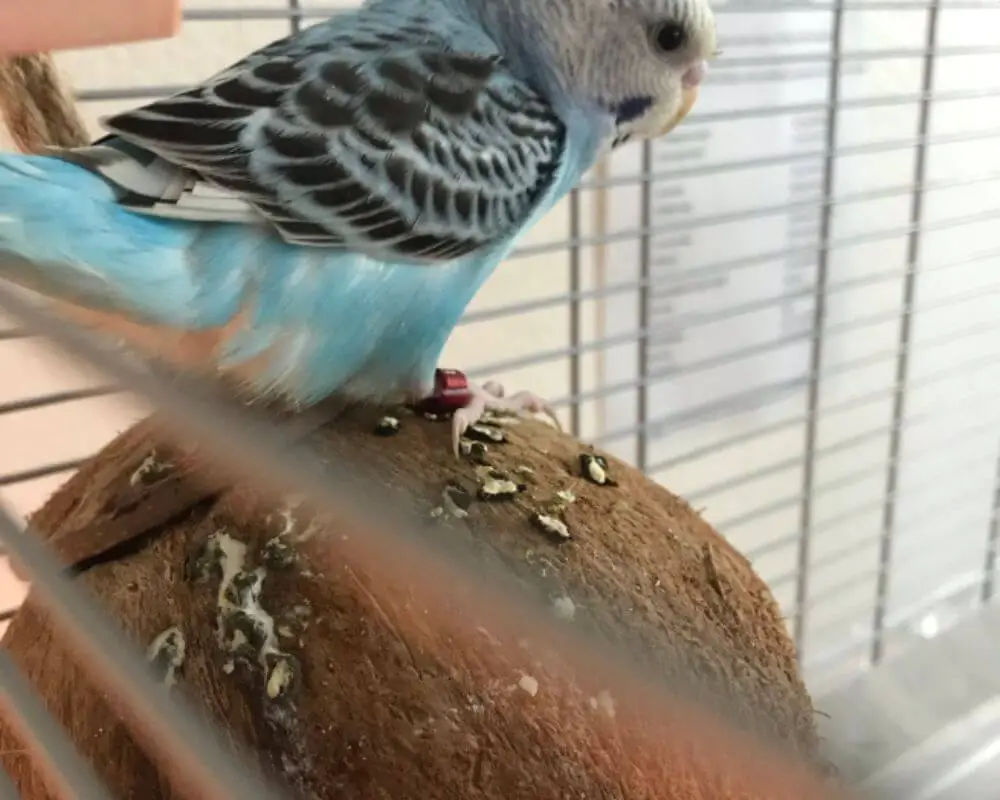
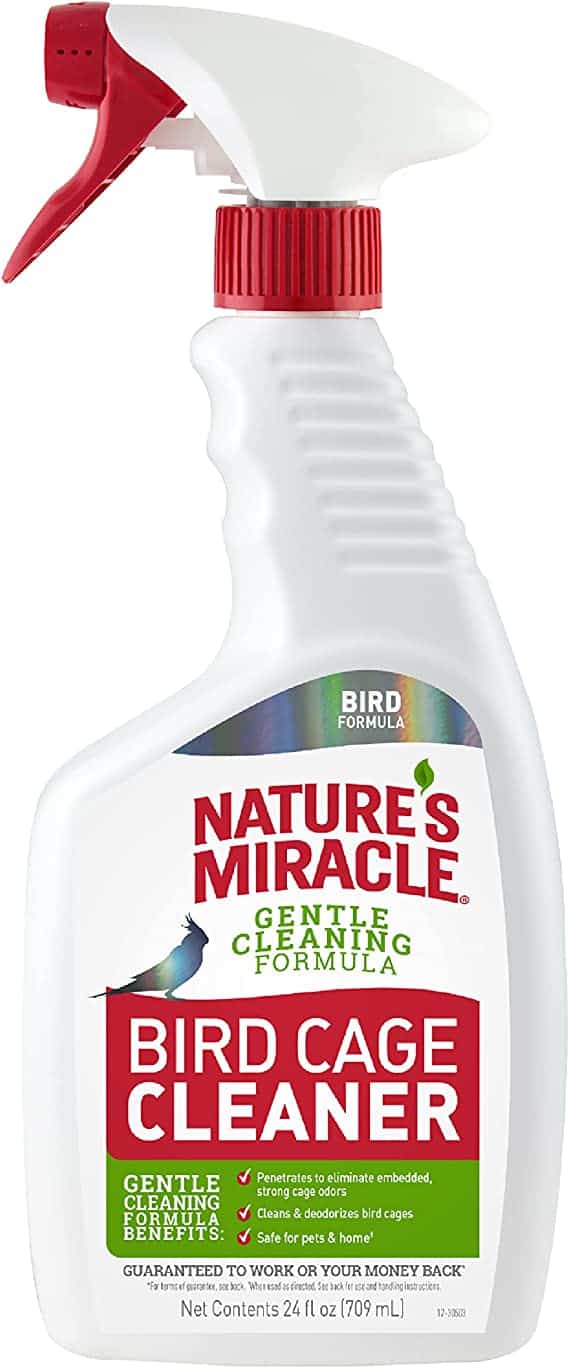
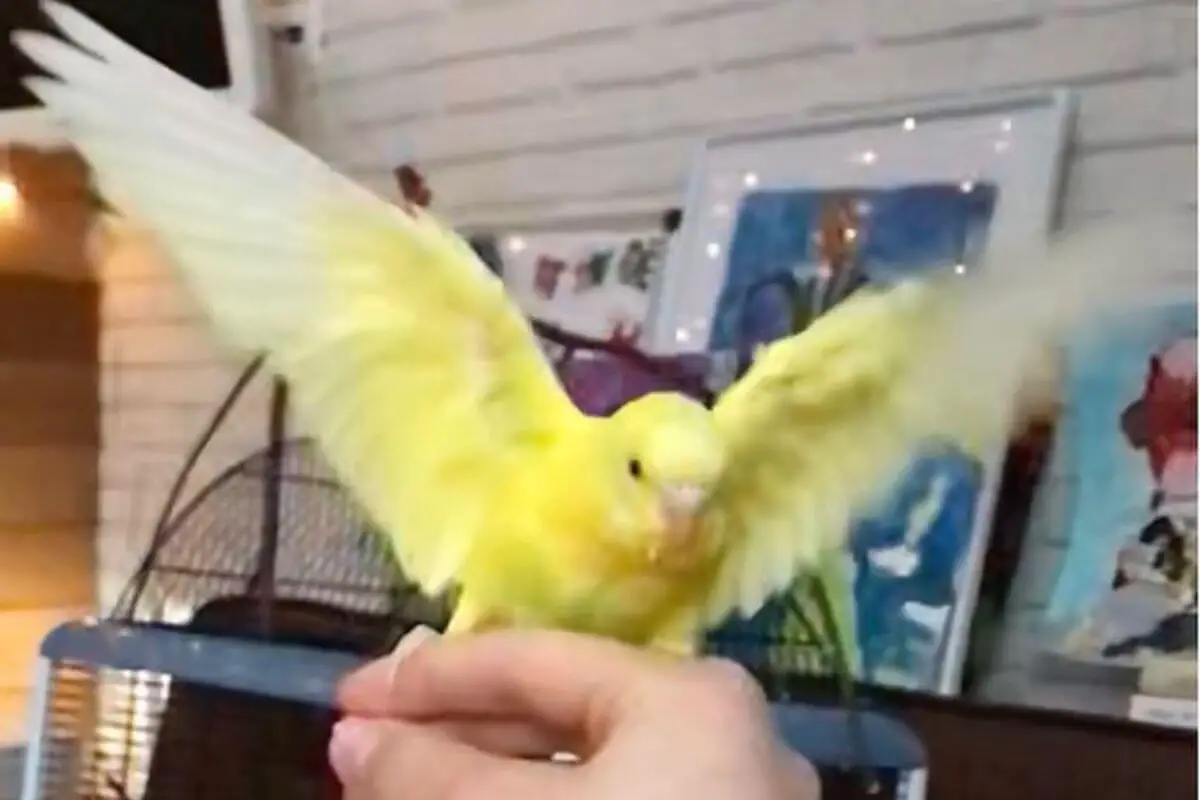
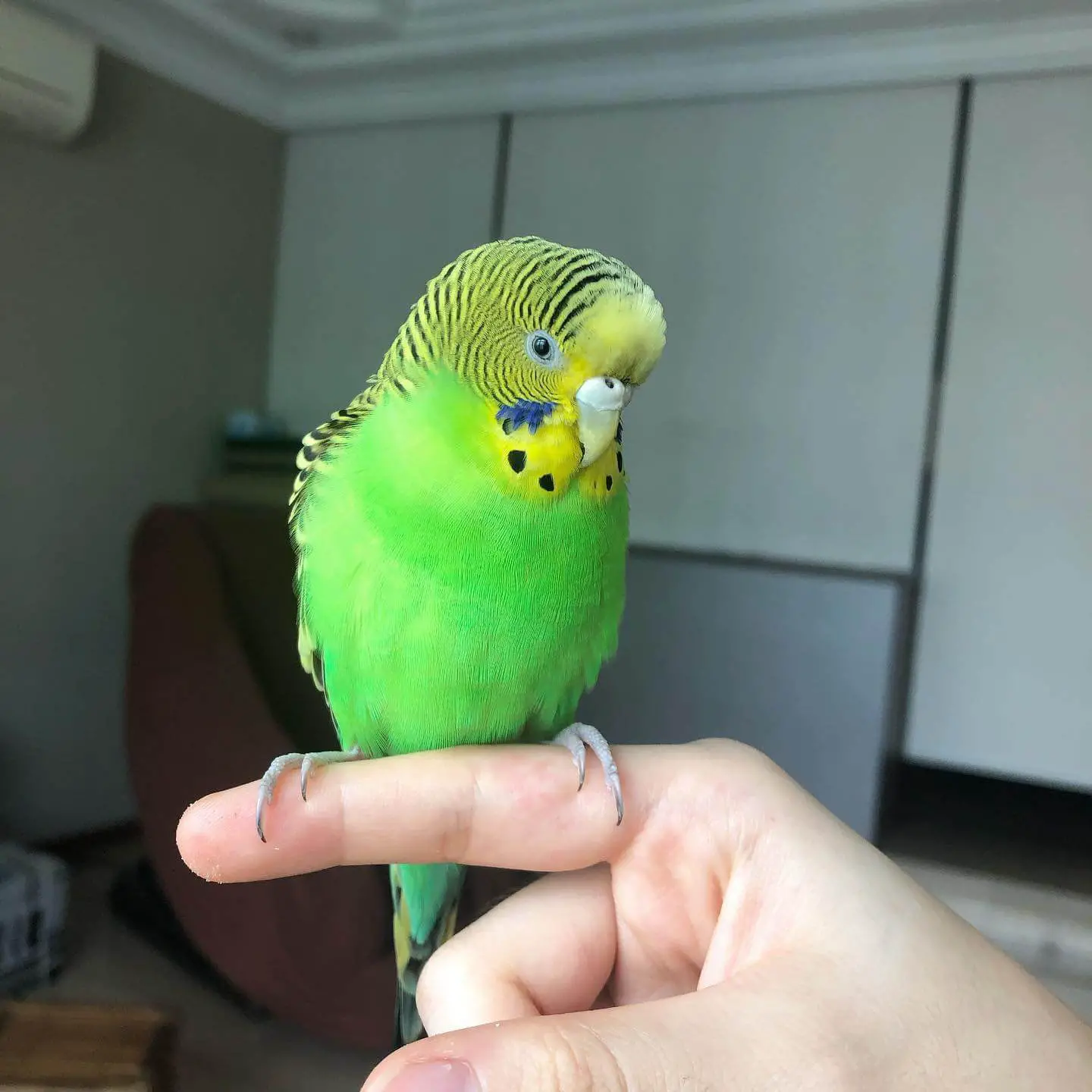
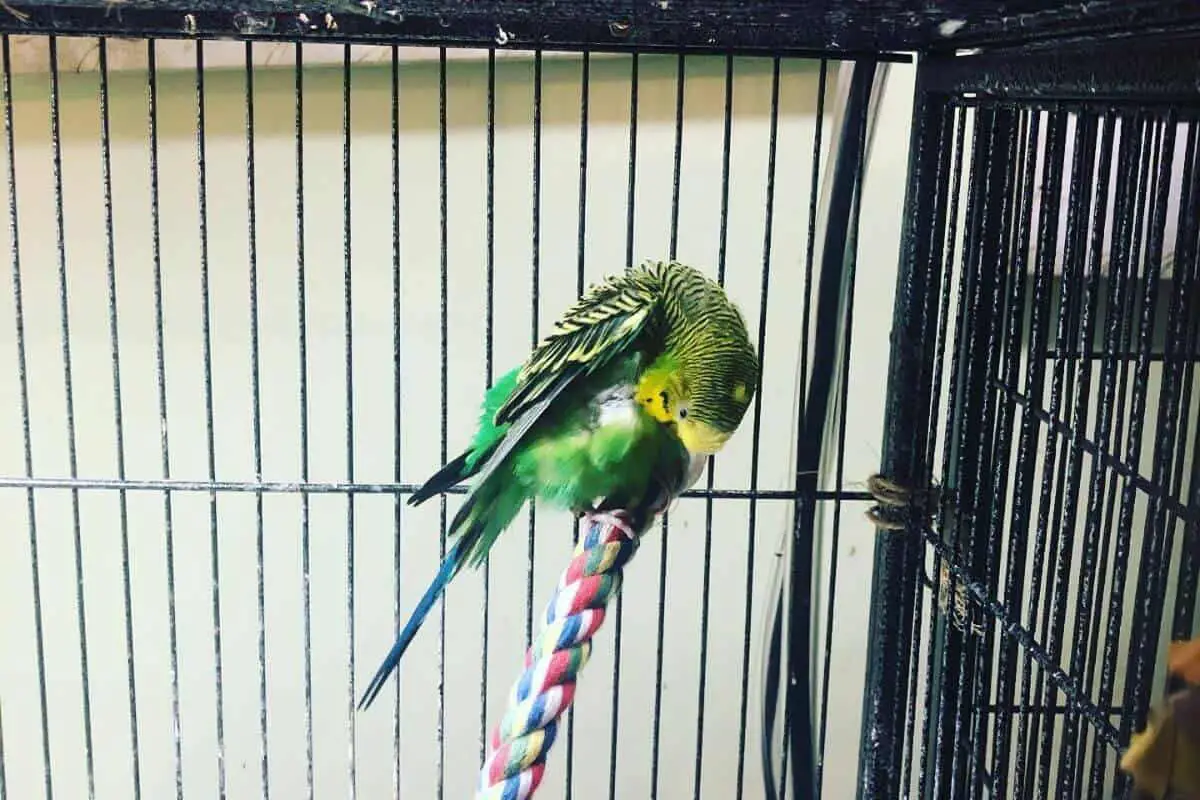
Leave a Reply